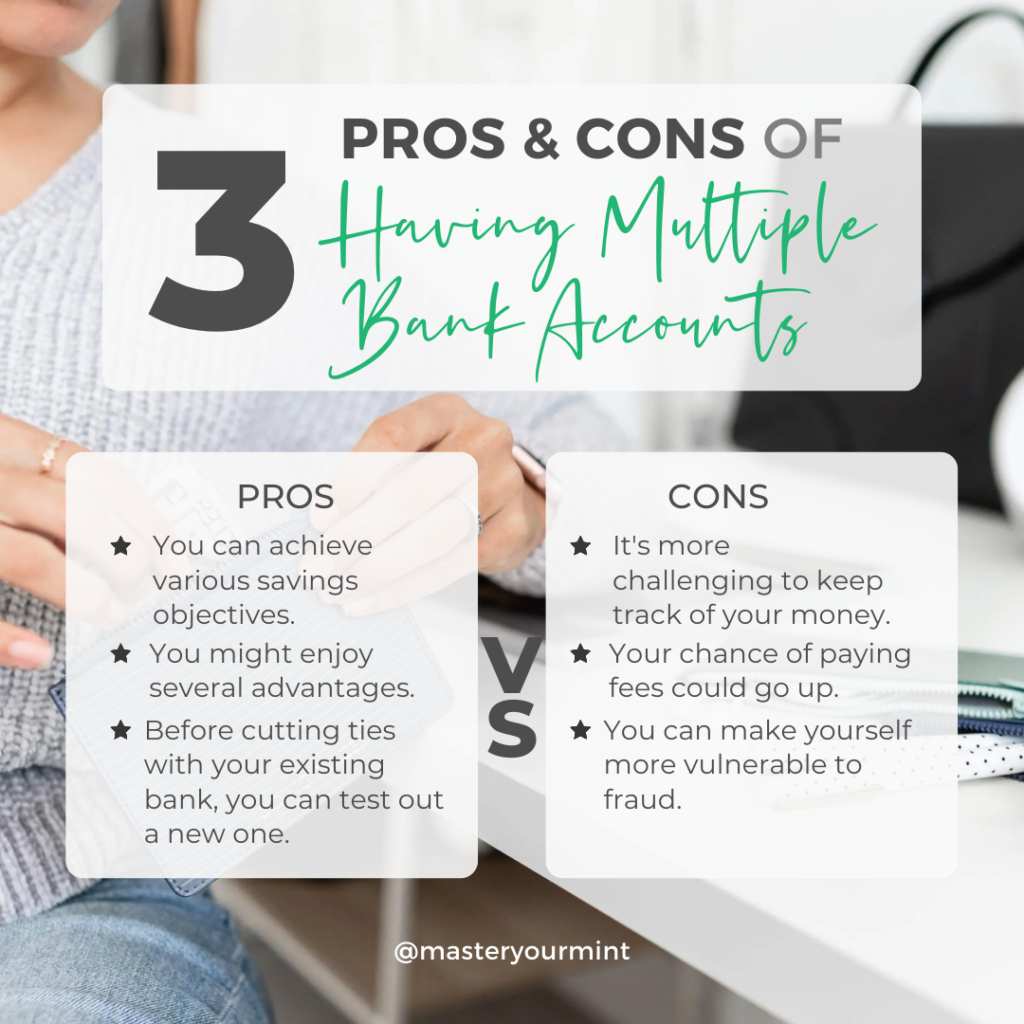3 Pros and Cons of Having Multiple Bank Accounts
Welcome to the Blog.
Tips to help you run your businesslike a business
Sign up for my newsletter for weekly business and tax support
First Name
Email Address
Submit
Get my latest book
GROUP
July 24, 2022
Do you have multiple bank accounts? If so, are you using them to your advantage?
While there are pros and cons to having multiple bank accounts, here are three of the most important ones to keep in mind:

Pro #1: You can achieve various savings objectives.
It might be simpler to keep track of your different savings objectives if you have many bank accounts. For instance, you might decide to create three different savings accounts: one for your emergency fund, one for a down payment on a house, and one for a big vacation.
Pro #2: You might enjoy several advantages.
In a bank, it makes sense to look for particular items. You might, for instance, desire reasonable costs, excellent customer service, and competitive interest rates. You might receive greater benefits if you keep your money in several institutions. For instance, a bank that operates online can provide you with a greater interest rate on your savings but lack accessible ATMs. While a physical bank might not have the same interest rates on savings, it does have a large number of convenient locations and a vast network of conveniently accessible ATMs.
Pro #3: Before cutting ties with your existing bank, you can test out a new one.
It can be difficult to change banks. In fact, even if they had a good reason to believe a new bank would be a better fit, more than 48% of consumers stated they’re unlikely to leave, according to a recent study by The Ascent. On the other hand, opening numerous bank accounts enables you to utilize the benefits of your current bank while also testing out a new one. You’ll be better able to choose which is a better long-term fit for you if you do this.
Con #1: It’s more challenging to keep track of your money.
It’s simple to check your balance online and keep an eye on your spending when you have a single bank account. You can find it more challenging to keep track of your balances if you have money in several banks.
Con #2: Your chance of paying fees could go up.
To avoid fees, several bank accounts have a minimum balance requirement. If you divide your funds over several accounts, you run the danger of falling below those minimal amounts and incurring fees. You’ll be less inclined to step over that threshold if all your money is in one location.
Con #3: You can make yourself more vulnerable to fraud.
Any bank you select needs to have reliable security and fraud prevention procedures in place. You are, however, more likely to become a victim the more accounts you have. You’ll be providing crooks with more opportunities to obtain your money or personal information.
Whether you’re looking to simplify your finances, consolidate debt, or just save more money each month, having multiple bank accounts might be a good option for you. Of course, there are pros and cons to this approach, which is why we encourage you to explore all of your options before making any decisions. If you’re curious about what it would be like to have a second (or third) bank account, BOOK A CLARITY CALL with me. I’ll help you assess your unique financial situation and discuss the best way to move forward.
Thanks for reading!